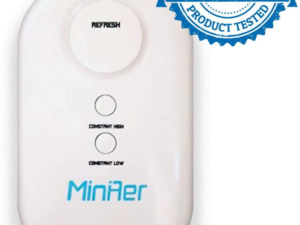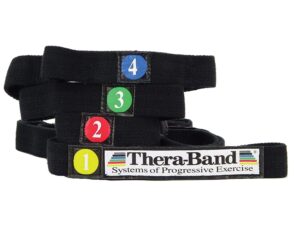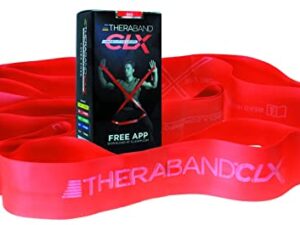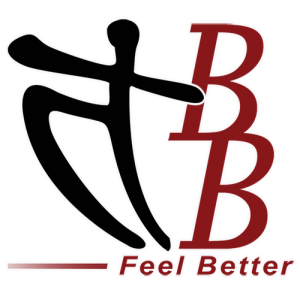Actions Triumph Words
Actions Triumph Words
Over the years, we have all found certain quotes or guidance to motivate, lift and energize our spirit and those of others. I have so many favorites, but there are three in particular that I have been repeating to myself, my kids and even the kids I coach, more than any others over my years. You may not know where or when you first heard the quotes you love. You may not know for certain who actually said them first. All I know is that it wasn’t me who said mine first, and it doesn’t matter. What matters is how they can have an impact on yourself, others or if your fortunate like me, your own kids.
My three favorites have always been:
1. Anything worth having is worth working for.
2. Good judgement comes from experience and a lot of that comes from bad judgement.
3. To succeed in sports, you must have a short term memory.
The first 2 you all may have heard before. I think they are self-explanatory. The third one may be more of a piece of advice. This advice has allowed me to enjoy playing and competing in sports most of my life. My coaches would all tell us to never get too high after a win or too low after a loss. Never get too high after a great hit or catch or too low after a missed shot or turn-over. You must have the ability to get back up and focus on the next play or next game, no matter what. And if your following this logic, than quotes #1 and #2 are a part of being able to handle #3.
Well, this past week, I was proud to see that these words actually resonated with my 10 year old daughter, Lilah. In the first inning of her softball game, she was having a tough outing at pitcher. She’s been practicing real hard, but had been off for two weeks’ vacation with the family, and didn’t pitch at all during that time. This was her first game back. She ended the first inning by letting up 5 runs and hitting 2 batters (so hard, that they cried as they left field). This is enough to rattle any of us. With a 5 runs per inning rule in effect and no outs even recorded, Lilah left the field, she ran into my arms and dropped to her knees, crying. She didn’t care about the runs, but rather that she made the other girls cry. Wearing both a coaches hat and dad hat, I explained that it was part of the game and no one thinks for second that this was her intention. She continued to cry and exclaimed, “I’m not pitching anymore!” and walked to the end of the bench and hung her head. I proceeded to follow her and said, “Let’s not make any decisions just yet. Have some water, breath and collect yourself.” She nodded in agreement. As the inning continued, she flagged me over from where I was coaching third, to see if I had told anyone else to prepare to pitch. I had not, I told her. “I want to pitch next inning”, she said. “Ok, whatever you decide is fine with me”, I told her.
[frame title=”” link=”” src=”https://bostonbodyworker.com/wp-content/uploads/2018/08/lilah.jpeg” width=”350″ height=”350″ align=”right” alt=”softball pitcher”]The next inning Lilah took the mound. As she did this, I jogged down to the bullpen with another player to help her warm-up. This player was already slated to pitch the next 2 innings. By the time I got to the bull pen, Lilah had made her first pitch, which was hit to our second basemen, making the first out. Needing just 5 more pitches, she struck-out another and forced a ground ball out. If you’re doing the math, she only needed 6 pitches to get out of the inning. Amazed (and proud), I walked back to the dug-out to organize the team, when I noticed the umpire walking out to meet Lilah as she was exiting the field. He grabbed her arm and waved me over at the same time. He looked at Lilah and said, “You had yourself a horrible first inning, young lady. I know you were really upset when you hit those girls. But, look what you just did. It only took you 6 pitches to get 3 outs. That, young lady is something you should be proud of. You know what you have?”, he asked. “You have short term memory.” Lilah immediately looked at me and me at her. We both smiled and hugged as she thanked the umpire and exited the field.
Having short term memory when playing sports is something athletes need. We all know too well that some days we have it and some days we don’t. Don’t think for a moment that your opponents don’t care just as much about winning as you do. They do. You win some. You lose some. However, this entire experience will be imbedded in my long term memory for certain.
What are some of your favorite quotes or bits of advice that you tend to always offer others? I would love to hear them. We all have moments in our lives that are suddenly teachable. Tell me some of yours.
Ready to #feelbetter?
You're just a click away from a wicked good massage!
-

60 Minute Massage Gift Card
$170.00 Add to cart -

90 Minute Massage Gift Card
$255.00 Add to cart -

Mini Aer Small Room Air Purifier
$149.00 Add to cart -
Sale!

Thera-Pearl Sports Pack/Hot Cold
Original price was: $14.99.$12.99Current price is: $12.99. Add to cart -

3 Somadome Sessions Gift Card
$135.00 Add to cart -

20 Minute Somadome Gift Card
$45.00 Add to cart -
Sale!

TheraBand® Stretch Strap
Original price was: $19.99.$14.99Current price is: $14.99. Add to cart -

TheraBand CLX Connective Loop
$14.99 Select options
Muscle Strains
A strain, sometimes referred to as a pulled muscle, is a muscle injury produced by excessive tensile stress that causes fibers to tear within the tissue. A muscle strain does not usually result from excess stretch alone, but from a combination of tension and contraction. Muscle strains can develop when excess tension is placed on…
Read MoreShin Splints or Compartment Syndrome?
One of the most common overuse injuries affecting the lower extremity is the condition known as shin splints. While the term shin splints routinely is used, especially among the athletic population, it does not represent a specific clinical pathology. Instead, it describes chronic shin pain resulting from overuse. It occurs in two regions of the…
Read MoreAn Alternative Approach to Stretching
Clinicians, athletes and rehabilitation specialists advocate stretching as a means for injury prevention and treatment. The primary purpose of any stretching technique is to enhance pliability and flexibility in the soft tissues. It is also routinely incorporated with massage in the treatment of pain and injury conditions. There are many different stretching techniques, which all…
Read MoreGanglion Cysts
The highly refined palpation skills of massage practitioners are such that we often identify tissue abnormalities before the client is aware of them. An indication that we should refer a patient for further evaluation is when we identify something we aren’t sure of but know shouldn’t normally be there. One such example may occur with…
Read MoreWhat Is the “End Feel”?
Some of the most valuable assessment information is derived from relatively simple procedures such as passive range-of-motion tests. While many massage practitioners have been exposed to the fundamental concepts of active and passive range-of-motion testing, most have not learned how to use this information effectively in a clinical environment. In this article, we will focus…
Read MoreHow Accurate Is That Test?
Physical assessment is considered one of the most accurate ways to assess function of the locomotor tissues of the body. While we can often gain valuable information about structural problems through high-tech diagnostic procedures like X-ray or MRI, these procedures tell us very little about the function of the tissues involved in creating and limiting…
Read MoreWhen Is It Tendinitis?
Tendinitis is one of the most common diagnoses for soft tissue pain resulting from repetitive motion. As repetitive motion disorders have dramatically increased, so has the incidence of tendinitis. However, recent investigations into the cellular nature of tendon pathologies have brought forth interesting discoveries that may alter the way tendinitis is treated. In this month’s…
Read More- « Previous
- 1
- …
- 18
- 19
- 20

